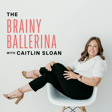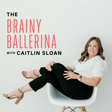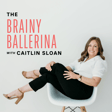
09. The Triumphs and Heartbreaking Losses of a Dance Career with Jacqueline Moscicke
Jacqueline Moscicke has danced professionally with Milwaukee Ballet and the Joffrey Ballet and is currently working as a freelance artist and instructor. She is also the founder of MSeam Apparel, a dancewear company she started in 2016 while dancing with the Joffrey.
Jacqueline gets incredibly honest in this episode about the triumphs in her dance career as well as the heartbreaking losses. We talk about the journey to being okay again after losing her contract and the identity crisis so common for dancers in a transition period. We also get a peek inside MSeam Apparel and all that’s to come in this next phase of life. If you’ve been struggling with not feeling good enough as a dancer - Jacqueline’s courageous story is a must-listen.
Key Moments:
- Early training [1:32]
- Joining Milwaukee Ballet at 17 years old after training at the school [5:42]
- A peek inside AGMA and the union process [8:13]
- Making the move to the Joffrey Ballet [10:54]
- Being let go after 9 years with the Joffrey Ballet [18:07]
- Shifting into freelance dance work [22:04]
- Starting MSeam Apparel [26:57]
- The future of MSeam Apparel [36:31]
- Her biggest piece of advice for dancers pursuing a career [38:50]
Connect with Jacqueline:
HER WEBSITE: mseamapparel.com
INSTAGRAM: instagram.com/mseamapparel
INSTAGRAM: instagram.com/jacquelinemo8
Links and Resources:
Career Transition for Dancers: The Entertainment Community Fund
Click here for one FREE month of Danscend’s Council for Educators with code BRAINY
1-1 Career Mentoring: book your complimentary career call
Let’s connect!
My WEBSITE: thebrainyballerina.com
INSTAGRAM: instagram.com/thebrainyballerina
Questions/comments? Email me at caitlin@thebrainyballerina.com


